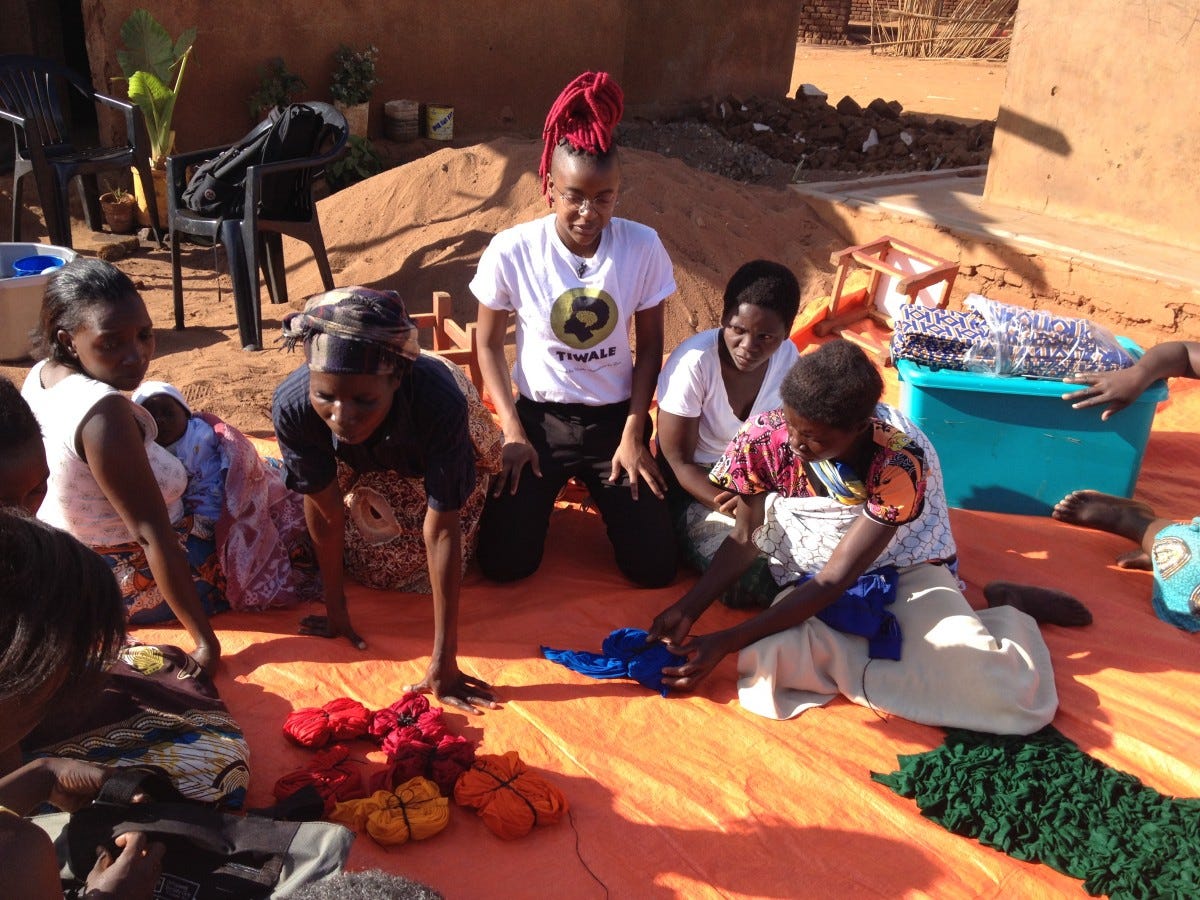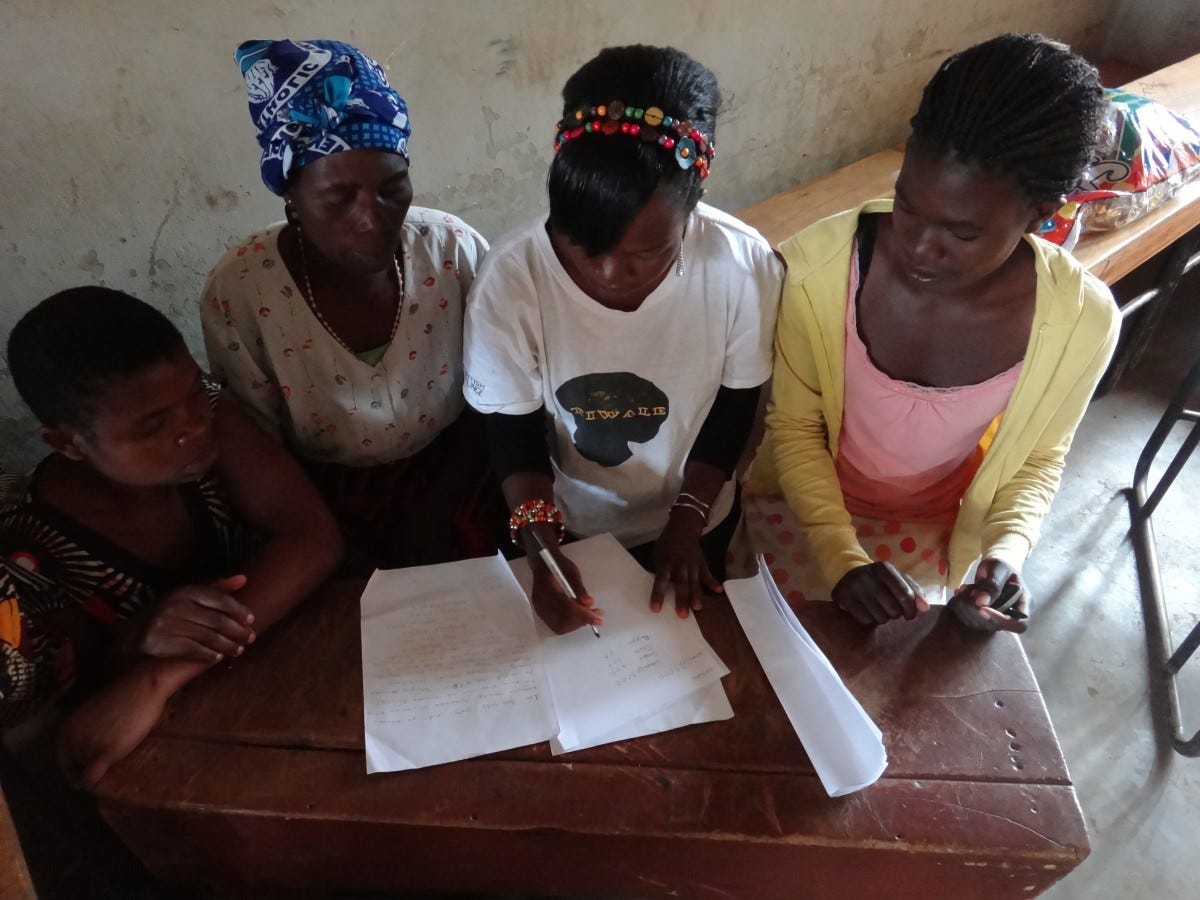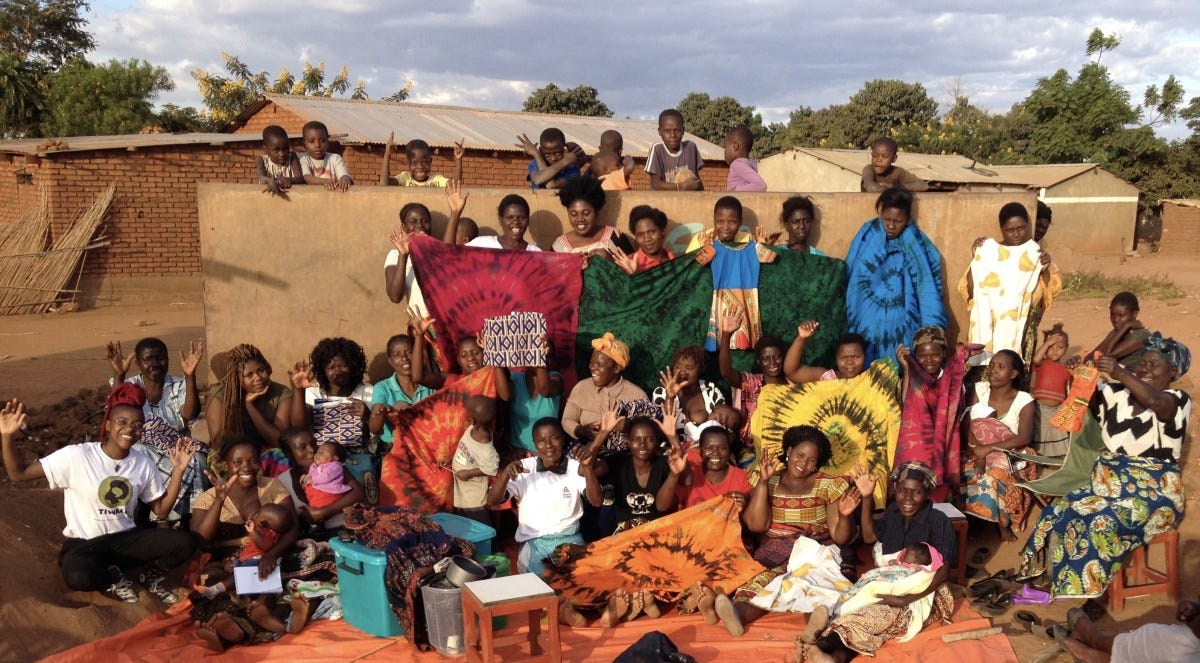
She was recently named by Forbes as one of Africa’s most promising entrepreneurs.
Ellen Chilemba is something of a powerhouse.
Recently named by Forbes as one of Africa’s most promising entrepreneurs under 30, her vision is to help women create paths out of poverty and to break the cycle of child marriage and lost potential.
Chilemba founded Tiwale, a for-profit social enterprise in Malawi when she was just 17. In the past three years, the organization has supported 150 women with business and vocational training, and helped 40 women start businesses or find employment. Recently, Tiwale secured its first dedicated office space with rooms for a classroom and a workshop for a new fabric design initiative that generates income for the program’s participants and helps sustain the organization.
But Chilemba isn’t stopping there. Built into Tiwale’s impact model is a commitment to innovating new approaches and truly empowering its women participants. That means taking a hard look at previous assumptions, listening closely to the women themselves and evolving the organization’s approach. Chilemba shared the following insights that she’s learned thus far, and that she’ll use to spur Tiwale’s next phase of growth:
- The problem isn’t always the problem.
“Sometimes what you think is the problem isn’t what the actual challenge is. I’ve learned to play the role of listener more and more,” says Chilemba.
Growing up in Malawi, Chilemba saw many of her female peers drop out of school as they were married off early in exchange for dowries. (In Malawi, one in two girls are married by the age of 18.) Chilemba saw a correlation between rising school fees, early marriage and girls discontinuing school. While the Malawian government provides primary school education for free, once students enter secondary school, families must pay fees ranging from US$40–1000 per year.
“This change, from no fee to a fee for education, is very stressful and unaffordable for most families,” Chilemba explained. “And because men are seen as the breadwinners, families think it sensible to focus on the male child continuing his education, rather than the female child.”
Thus, when Tiwale first launched, the team focused its mission on micro-lending in order to drive income growth. It targeted young women in poverty who were still in school — the idea was to help the women stay in school by providing them with the opportunity to pay for their own education. However, Chilemba soon realized that they hadn’t considered the time limitations of their participants.
“Something I missed at that time was the pressures that most of these students have to deal with,” Chilemba said. “They leave early for school, come back late, then help around the house — it just wasn’t feasible for them to run a business as well.”
Now, Tiwale works primarily with women who are unemployed and homemakers. With vocational training and the increased income through Tiwale’s support, the women are able to afford school fees for themselves and their children.

“This is an example of how listening to our participants allows us to discover considerations we may have missed,” Chilemba said. “Having the participants’ voices is a huge necessity.”
Chilemba’s Strategy: Create processes for participants to inform the design of solutions, create safe spaces for them to give feedback, and empower them to create change within the organization.
How does Tiwale continue to foster effective listening?
The organization holds regular feedback sessions, and half of the board is made up of program participants. The participants also meet together, separate from Tiwale staff, so that they can comfortably voice their opinions and then share those concerns with the rest of the team.
2. Change starts with the individual who has a mindset to make an impact, but grows stronger with community engagement
“We’ve had some people from the community oppose what we’re doing,” Chilemba said. “Traditionally, women are seen as people who should be in the home. And when an organization like Tiwale comes in and suggests that women should have an education and can make an income, it can sometimes be seen as threatening, or that we are trying to change the way things are.”
In the last six months, however, Tiwale has already undergone a shift in approach that has created a positive relationship with the local community. Chilemba notes that this shift was sparked during the Future Forward Globalizer Summit held in South Africa last year, where African social entrepreneurs gathered to discuss innovative approaches to solving youth unemployment, a major challenge facing the sub-Saharan region. Young innovators like Chilemba attended intense training workshops with seasoned social entrepreneurs.
“Before training, our thought process was focused on maximizing the impact we create for Tiwale’s participants, and fostering their growth within our organization,” said Chilemba. “But I was very inspired by some of the speakers at Future Forward–for example, Marlon Parker, an Ashoka Fellow and one of the founders of RLab, talked about how his work isn’t just impacting participants, but the community as a whole.”

“[We saw that] incorporating the local community into our activities brings in this trust,” Chilemba explained. “[And] involving everyone encourages our participants as well. There’s a much bigger pride with being associated with us, compared to before.”
The Strategy: Design solutions that turn participants into changemakers for the entire community
“That inspiration has already changed Tiwale’s approach, in the sense that we are now starting to incorporate thinking about how our participants and the products they make impact their community.”
For instance, previously, Tiwale was focused on selling fabrics online to international markets, but now the women are developing fabrics that appeal to local markets and working with local craftsmen to complete some of the production processes. Tiwale’s participants are benefiting local markets and showing the community the positive results of their work. In this way, the women are also laying the foundation for changing mindsets and creating lasting change.
“Eventually, Tiwale women will be responsible for bringing other women in and training them too,” said Chilemba. “The focus is becoming more about learning something and then sharing it, rather than just learning something to advance yourself. We want to build in a way for women to pass along their skills.”
3. Starting an initiative from scratch can be intimidating — and that’s okay.
Tiwale began as “an idea on paper drafts,” Chilemba recalled. “When we first started, a friend and I drove out to the community we would be working in. We spoke to one woman and asked her if there was an opportunity for us to do microfinance work here. It was a very casual start. We didn’t know if it was going to work.”
“We took the chance of speaking to her and planned to have a meeting the next week on a Monday. We weren’t sure if anyone would show up. But then she actually did show up with several women–actually more than several.”
Starting an initiative at age 17 also meant that Chilemba had to navigate her own feelings of pressure to live up to high standards.
“Some of the women that I work with in Tiwale are older than me, and because you are younger, you feel the pressure to maybe act like you know exactly what you’re doing.” “You’re scared of presenting vulnerability, in the sense that you fear that you might lose trust.”
The Strategy: Recognize that baby steps and course-correcting are always involved–for every successful organization in the landscape.
Chilemba reminds herself that as a young social entrepreneur, receiving feedback is part of the territory. “You have to allow yourself the space to be corrected,” she said. “Eventually, it all works out.”
There’s a confident optimism that permeates Chilemba’s leadership style, and she encourages young people not to be intimidated by how far other organizations have already come.
“Sometimes I like to go back to the first posts on Tiwale’s Facebook–I think, ‘wow this was ridiculous,’” Chilemba said, in good humor. “The point is, Tiwale came together slowly, with baby steps. With any organization that you’re looking up to, don’t forget that they had their baby steps too.
